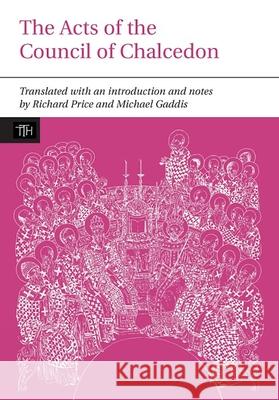The Acts of the Council of Chalcedon » książka
The Acts of the Council of Chalcedon
ISBN-13: 9781846311000 / Angielski / Miękka / 2007 / 320 str.
The Council of Chalcedon in 451 was a defining moment in the Christological controversies that tore apart the churches of the Eastern Roman Empire in the fifth and sixth centuries. Theological division, political rivalry and sectarian violence combined to produce what ultimately became separate Chalcedonian and non-Chalcedonian churches, a schism that persists to this day. Whether seen as a milestone in the development of orthodox doctrine or as a divisive and misguided cause of schism, Chalcedon is chiefly remembered for its Definition of Faith, a classic expression of Christian belief in Christ as both God and man. The council also dealt with other contentious issues relating to individuals and to the rights of various sees; its famous Canon 28 was crucial in the development of the patriarchate of Constantinople. Little attention, however, has been devoted to the process by which these results were reached, the day-by-day deliberations of the council as revealed in its Acts. These are particularly











